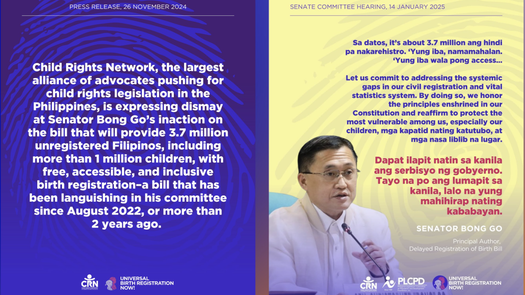July 29, 2025

A landmark law, in Cameroon, passed by the National Assembly on December 23, 2024, modernizes the country’s civil registration system and makes it easier for Cameroonians to obtain registration they need for essential services. This comprehensive legislation, Law No. 2024/016, replaces an outdated 1981 law and introduces crucial reforms that will transform how vital events are recorded and managed across the nation, enhancing the country’s ability to conduct evidence-based health and development planning while supporting citizens’ civil rights.
Support in Shaping the Law
The Global Health Advocacy Incubator (GHAI) began providing technical assistance for the new bill in 2020. GHAI presented recommendations in 2021 that were incorporated into subsequent drafts, strengthening provisions on the registration of births, deaths and marriages, vital statistics and data protection. A significant milestone was reached during a three-day workshop in November 2021, where key stakeholders, including the National Bureau of Civil Status (BUNEC), Ministry of Public Health, National Institute of Statistics and international partners like GIZ and UNICEF, aligned around core objectives in a discussion facilitated by GHAI. This collaborative approach ensured the law aligned with international guidelines and standards, while addressing Cameroon's specific needs.

Transformative Changes for Rights to Identity
The new law establishes universal registration of vital events while introducing digital civil registration certificates and a Unique Personal Identification Number (UPIN) system. For Cameroonian families, this means free registration and first-time certificates, simplified processes and improved access through decentralized health facilities. Bringing Civil Registration and Vital Statistics (CRVS) facilities closer to the people and making the processes free (or as low-cost as possible) ultimately benefit the state and the people it serves. The extended 90-day birth registration window gives parents more time to register their newborns, ensuring children's right to identity from birth.
Sustainable Financing for Implementation
The new law establishes a dedicated funding system overseen by the The National Civil Status Registration Office (BUNEC) for computerization, training of registration staff and development of secondary civil status centers. A key focus is establishing a sustainable mechanism for financing the National Civil Status Policy, which is provided for in the law. The law also includes specific provisions that should ensure sustainable funding for the implementation of the National Civil Status Policy, through annual state contributions. This dedicated funding is intended for system computerization, training of registration staff and development of secondary civil status centers, among other activities.
Looking Ahead
Implementation of the new civil registration law will be guided by Cameroon's Strategic Plan for Modernizing the Civil Registration System (2025-2029). The Priority Investment Plan 2025-2027 within the strategy will focus on improving service delivery and system computerization, ensuring every Cameroonian has access to civil registration services and legal identity documentation. This modernized system will provide the government with reliable data for evidence-based public health planning while protecting inheritance rights for widows and children and ensuring access to education through proper birth registration.
The law is both a victory for the government and the people. For the government, it enables the collection of comprehensive vital statistics to inform evidence-based public policy decisions to strengthen its health system and advance other development priorities. It equally paves the way for enhancing the capacity of officials at all levels to manage an efficient CRVS system. For the people, particularly vulnerable groups such as widows and children, increased rates of civil registration will ensure legal protection for various rights – such as education, inheritance, legal identity and citizenship. With BUNEC leading implementation alongside other key CRVS stakeholders, the focus now shifts to executing this transformative law effectively and ensuring the financing of implementation.



